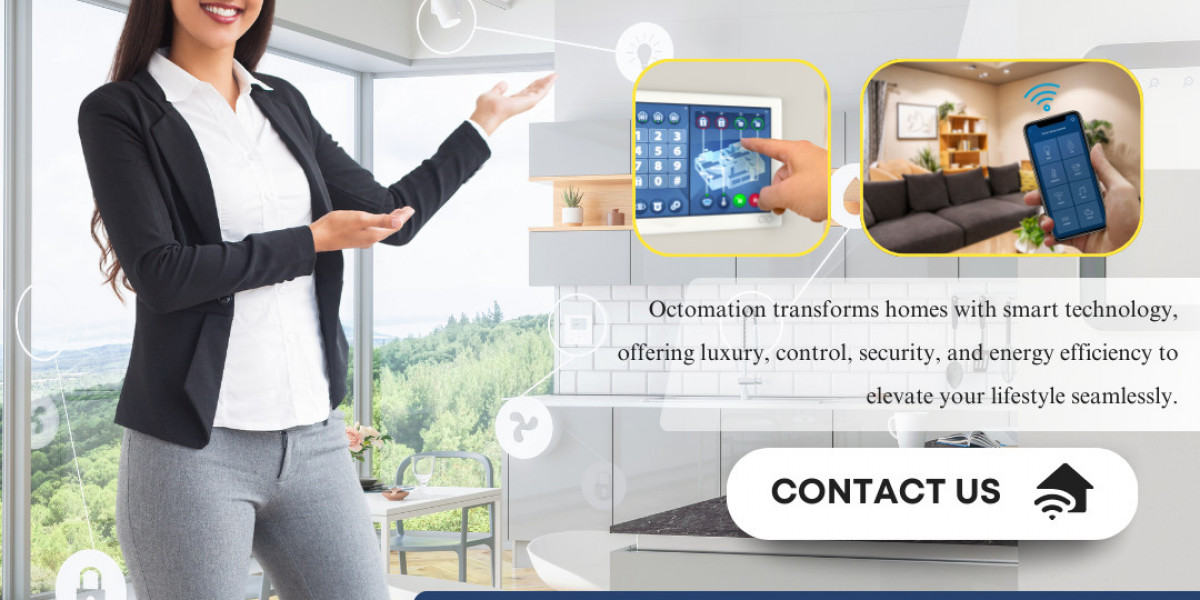Energy efficiency is now necessary for growing energy prices and increased environmental consciousness. Smart home technology, a revolutionary invention that enables homeowners to significantly lower their energy use while improving convenience, security, and lifestyle quality, is at the vanguard of this movement. As leaders in intelligent living, we understand how critical connected technologies are to converting conventional homes into environmentally responsible ecosystems.
Enhance your home's energy efficiency, comfort, and ambiance effortlessly with lighting automation, the future of intelligent illumination control.
Recognizing the Connection Between Energy Efficiency and Smart Homes
Automating and optimizing house operations by integrating internet-connected devices and systems is known as "smart home technology." To achieve the most significant possible energy savings, every component—from appliances and water management to HVAC and lighting systems—communicates via centralized platforms or artificial intelligence algorithms. In addition to automation, these systems are made intelligently responsive, instantly adjusting to changes in the environment and user behavior.
Smart Thermostats: The Key to More Effective HVAC Systems
Almost half of home energy use is for heating and cooling. Smart thermostats such as Nest, Ecobee, and Honeywell are revolutionizing how we regulate indoor temperatures. These devices can lower HVAC energy use by up to 30% annually by automating temperature adjustments based on occupancy, weather, and time of day after learning user patterns.
Additionally, thermostats integrated with geofencing technology can go into eco-mode. At the same time, no one is home and returns to comfort settings right before occupants arrive, resulting in an energy-saving loop that is simple and unmatched by conventional systems.
Intelligent Lighting Systems: Illuminating Energy Conservation
The ease of using a remote control is just one aspect of innovative lighting solutions. LED-based bright lights, such as those made by Philips Hue, LIFX, and others, enable sophisticated scheduling, motion detection, ambient light control, and even voice command integration through Alexa or Google Assistant while using up to 80% less energy than conventional incandescent bulbs.
Transform your lifestyle with intelligent living solutions from a trusted home automation company in Delhi offering cutting-edge technology integration.
By dynamically altering brightness levels based on available natural light and room usage, smart switches, and dimmers may minimize power consumption and guarantee that energy is never wasted.
Analytics for Energy Monitoring and Usage
Particularly when it comes to energy use, information truly is power. Real-time information on power consumption, down to the particular appliance, is provided by smart home energy monitors like Sense or Emporia Vue. To assist homes in modifying usage patterns, unplugging unused electronics, or planning high-load appliances for off-peak hours, these apps identify energy-hungry items and offer valuable insights.
A data-driven strategy for energy efficiency is the end outcome, enabling proactive decision-making and resulting in notable cost savings.
Intelligent Appliances: Effectiveness at Every Stage
Energy conservation is a priority in the design of contemporary smart appliances. These appliances, which range from dishwashers and ovens to refrigerators and washing machines with Energy Star ratings, have features like load detection, eco-mode cycles, and delay-start timers.
Legacy appliances gain an additional intelligence layer via smart plugs and power strips, enabling remote control and energy schedule automation. Automating shut-off times during inactivity can help homeowners reduce phantom loads or the energy gadgets consumed in standby mode.
Intelligent window treatments and automated shades
Windows accounts for a large amount of heat and cooling loss. Smart blinds and shades save the strain on HVAC systems by automatically adjusting to indoor temperatures and sunshine exposure. These technologies make passive solar management an active participant in energy conservation by utilizing sun-tracking algorithms and integrating with climate sensors to block heat during the summer and permit warmth during the winter.
Experience seamless smart living with advanced solutions from a leading home automation company in Gurgaon, tailored for modern lifestyles.
Water-efficient Smart Irrigation Systems
Water management is just as crucial as electricity in terms of energy efficiency. Smart irrigation controllers consider plant-specific needs, soil moisture data, and weather forecasts to reduce water wastage. By reducing outdoor water usage by up to 50%, systems like Rachio and RainMachine indirectly save energy needed for water pumping, treatment, and heating.
Both centralized control hubs and voice assistants
Smart house hubs like Apple HomeKit, Google Nest Hub, and Amazon Echo unify all energy system administration. Homeowners can establish energy-saving habits by centralizing control, like "Away Mode," which turns off non-essential gadgets, lowers the temperature, and dims lights simultaneously. These personalized automation processes make repeatable and effortless energy-saving behavior possible.
Integration of Renewable Energy: Solar and Smart
Efficiency is increased when renewable energy sources, such as solar panels, are combined with smart home technologies. Smart inverters and battery storage systems optimize solar power self-consumption, enable peak load shaving, and dynamically disperse energy usage throughout periods of high demand. Complete energy autonomy is provided by systems like Enphase Ensemble and Tesla Powerwall, which easily interface with smart home platforms.
Energy-Saving Security Systems
Smart security helps save energy and provides protection. Smart cameras, occupancy sensors, and video doorbells offer more intelligent lighting and climate control management. For instance, smart locks can initiate energy-saving sequences when residents leave or return, and motion-activated lighting ensures lights are only turned on when necessary.
Upgrade your interiors with elegant motorized curtains that offer effortless control, privacy, and energy efficiency at your fingertips.
AI-Powered Optimization and Home Automation
Predictive automation is the key to energy efficiency in the future. AI-powered systems dynamically optimize energy use by analyzing past data, current inputs, and environmental factors. These platforms learn from patterns to gradually improve energy-saving tactics on their own and modify systems in response to user input.
The Benefits to the Economy and Environment
A smart home improvement can have a range of upfront costs, but there are significant long-term financial advantages. Within a few years, households can anticipate a return on their investment through lower utility costs, increased home value, and eligibility for government incentives and utility rebates. More significantly, the environmental advantages of smart home technology—such as a smaller carbon footprint, less dependency on fossil fuels, and sustainable living—make the switch a global necessity.
In conclusion, sustainable living is smart living.
Smart home technology adoption is now a calculated investment in modern comfort, environmental responsibility, and energy efficiency rather than luxury. Homeowners can take complete control of their energy use and spearhead the transition to a more sustainable future with connected systems that are made to adapt, automate, and optimize.










